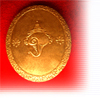 |
Lullaby composed for Swathi: Omana Thingal (Translation of Lullaby of Irayimman Thampi by Fox Strangeways.) |
 |
Lullaby composed for Swathi: Omana Thingal (Translation of Lullaby of Irayimman Thampi by Fox Strangeways.) |
 |
The
web site of the Kerala Tourism Department proudly proclaims: Kerala
has a wealth of soft lilting folk lullabies. Nurtured down the generations,
they have even cast an influence over mainstream Malayalam poetry. The
poignant lullaby “Omanathingal Kidavo……”, strikes
a tender chord in ever Malayalee. Generations of children have been
lulled asleep by its soothing notes. Sung
by generations over centuries the strains of this lullaby have been
dyed into the warp and woof of the |
Malayalee’s
cultural repertoire.Evoking intense nostalgia |
| for
a bygone phase ofone’s life filled with tender affections and motherly
care, the lullaby also thrills one with a sense of de javu.
Omana
thinkal kidavo is believed to have been composed for putting to sleep
the young Swathi Thirunal by the famous poet lyricist Iravi Varman Thampi
(1783-1856 A.D), popularly known as Iryimman Thampi. Swathi’s
birth was a long awaited event for the royal family as it was in the
danger of having to hand over the reins of power to the British for
want of a male heir. The joy of the whole royal family and the people
of the state seem to have been distilled into the lullaby Omana Thinkal
Kidavo. To this date, it remains the most popular lullaby for Keralites,
whether in Kerala or abroad, in spite of the religious tone in a few
stanzas. |
 |
Swathi
Thirunal was a fountain of music. Irayimman Thampi, his maternal uncle
was himself a gifted composer of Carnatic music. Three of Thampi’s
famous compositions are testimony to his greatness as a poet and composer.
These three compositions portray very different emotions. Thampi was
an exponent of Kathakali, Kathakali artistes are adept in acting out
9 different emotions. Whereas Omana Thingal Kidavo distills motherly
affection, Prana Naathan Enikku Nalkiya portrays erotic feelings of
a lovelorn lady. The third one, Karuna Cheyyaan Enthu Thaamasam brims
with devotional fervour.Thampi’s lullaby seems to have been famous
in the 19th century itself. Fox Strangeways in his book . |
| The
immortal author of Omana Thingal: Irayimman Thampi |
Music
of Hindusthan” has not only given the music of the song in staff
notation, but went to the extent of compiling a translation. |
The
lullaby lists number of wonderful things in the world and wonders which
of these is the child.The
lullaby stands out from other popular lullabies around the world in
that it does not at all talk about sleep! The
baby is supposed to be induced to sleep by the proper selection of raga
(melody type in Indian
music). The songs are rendered in many ragas today, Neelambari being
very common, as the raga is traditionally believed to induce sleep.
Navarasam, a raga special to Kerala and also kurinchi are other popular
ragas used. The song has been rendered by Bombay S. Jayasri in the north
Indian raga Desh, in her magical voice. All ragas seem to suit the song.
Music lovers believe that the flowering of Swathi Thirunal’s musical
creativity owes a lot of Thampi’s great lullaby. Anyone who has
listened to the lullaby and also to Swathi’s music will find it
easy to agree. |


|
|
|
Copy
Right 2003 , All Rights Reserved, Designed and Maintained by C-DIT ,
www.cdit.org |